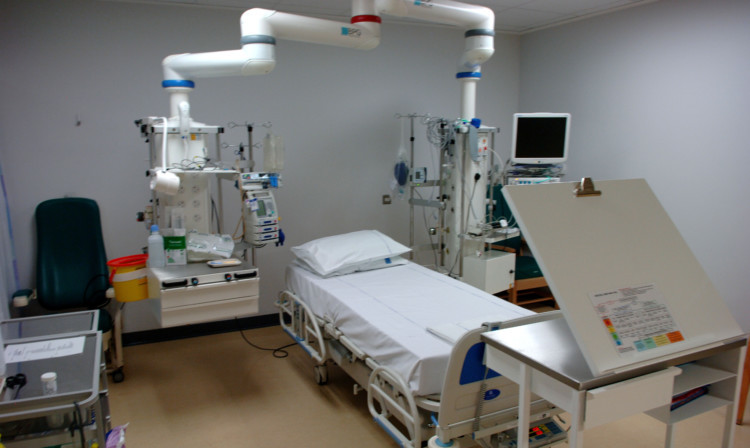
Controversy over single rooms policy in hospitals.
Scotland’s health secretary has been accused of ignoring concerns raised by doctors over single-room hospitals.
Scottish Government policy states all new NHS wards should have private facilities for every patient. But a petition lodged at Holyrood opposes the move and calls for a rethink.
The plea, backed by consultants and ex-NHS board members, raises fears the policy will lead to lonely elderly patients, safety problems and scared children.
Earlier this month Alex Neil wrote to MSPs considering the petition.
However Dr John Womersley, the retired public health consultant behind it, said the letter failed to address any of his concerns. He said: “The reasons why people want shared accommodation were totally ignored.
“Companionship has a healing effect, people in single rooms won’t get the same benefit.
“There’s an assumption that every young child would have a parent available to visit. That might not be possible for single-parents who work.
He added: “There are also safety concerns with single rooms. If someone has a cardiac arrest or falls out of bed they’d be spotted straight away in a multi-bed room.
“If something goes wrong then it will no doubt be the nurses who take the flak.”
The Scottish Government announced in 2010 that all new NHS hospitals in Scotland would have private facilities for every patient.
Hospitals that are refurbished must ensure at least 50% of beds are in single rooms.
The first full single-bed hospital was The Royal Victoria in Edinburgh, which opened in 2012.
The new £842 million South Glasgow Hospital, which will replace the Southern General, will also be single occupancy as will the new Dumfries and Galloway Royal Infirmary.
The Scottish Government claims nurses and patients have expressed a desire for private rooms in all hospitals. It insists the policy will help keep infections under control, encourage families to visit sick relatives and cut the length of hospital stays.
However Dr Chris Isles, a consultant at Dumfries and Galloway Royal Infirmary, believes patients should have a choice.
He said: “I have concerns that 100% single rooms are a bad idea, particularly for the very young and very old who risk sensory deprivation by being isolated for days at a time.
“There is clearly a complete unwillingness in the Scottish Government even to consider the possibility that they might have made a mistake here.”
His fears were backed by David Hannay, a former NHS board member, who said single-bed hospitals would lead to “lonely old people and frightened children”.
Dr Jean Turner of the Scotland Patients Association suggested there is even an argument for dormitory-style “Nightingale wards”. Once common, they had up to 30 beds but were abolished amid fears they contributed to the spread of superbugs.
A spokesperson for the Scottish Government said: “We agreed to a review of all the available research since 2008 in relation to single rooms. We have also demonstrated that if there is a clinical case for a variation to single rooms, this will be considered on its merits.”
Numerous surveys have shown a significant number of patients would want to stay in a room with other people or at least have that choice.
A poll by The Sunday Post found one in 10 people would want to be in a room with other patients, while a third said they had no preference.
Only 41% of a representative sample of 990 Scottish adults (not all of whom had previously been admitted to hospital) in one of the Government’s surveys expressed a definite preference for a single room.
In a smaller survey of 80 inpatients at Dumfries and Galloway Royal Infirmary only half of patients who had experienced a stay in a single room wanted to return to one if readmitted.
Supporters of the single-bed policy in Scotland argue it will cut down on hospital acquired infections.
Leading microbiologist Hugh Pennington, left, argues that evidence suggests physical barriers such as walls are “good at preventing the spread of harmful microbes”.
He cites a recent study in Canada on the effect of changing intensive care unit arrangements from multibed to single rooms.
The study showed falls in rates of superbugs C Diff and MRSA, which are a problem in many British hospitals, after they changed from multi-bed wards to single-bed wards.
He said: “A patient with undiagnosed disease in a single room is less likely to infect others.”

Enjoy the convenience of having The Sunday Post delivered as a digital ePaper straight to your smartphone, tablet or computer.
Subscribe for only £5.49 a month and enjoy all the benefits of the printed paper as a digital replica.
Subscribe